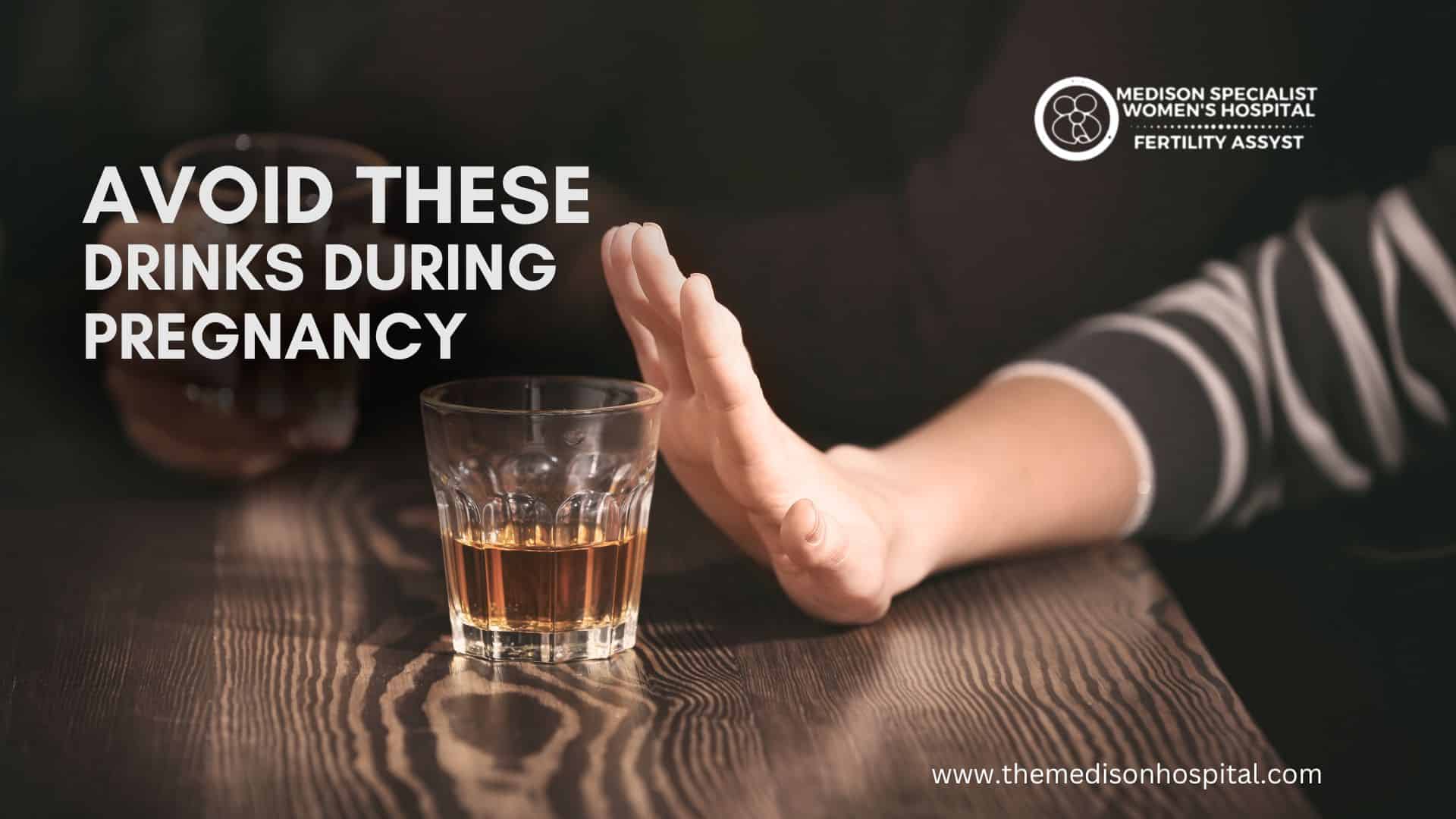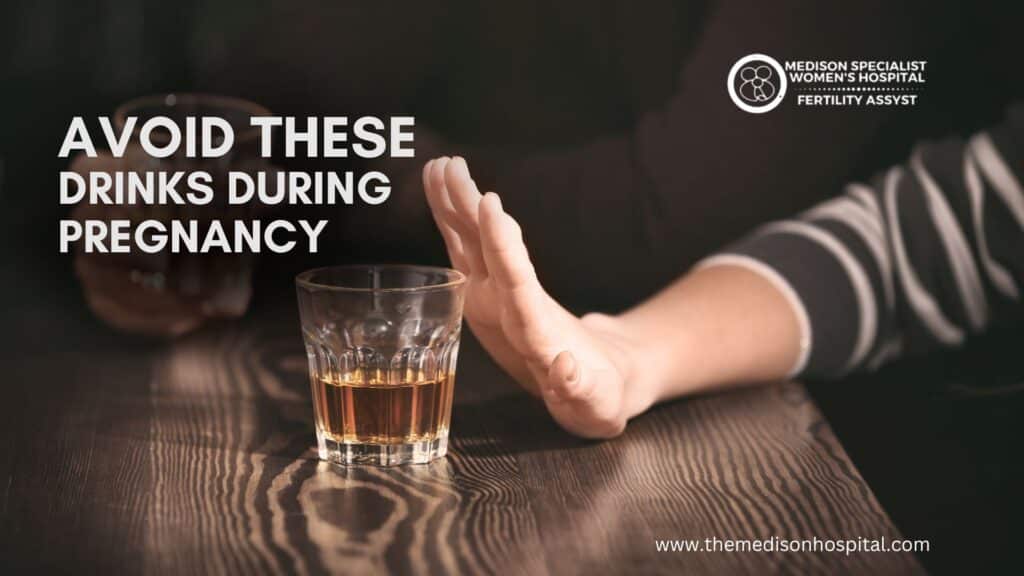10 Drinks to Avoid During Pregnancy

Pregnancy is a time of joy, anticipation, and careful choices—especially regarding what you eat and drink. While staying hydrated is crucial for you and your growing baby, not all beverages are safe during these critical nine months. At Medison Hospital, we prioritize your health and your baby’s well-being, so we’ve compiled this list of 10 drinks to avoid during pregnancy, along with healthier alternatives to keep you refreshed and nourished.
Why Your Drink Choices Matter
Everything you consume during pregnancy crosses the placenta, directly impacting fetal development. Certain drinks pose risks ranging from developmental issues to bacterial infections. By avoiding these beverages, you reduce the risk of complications like miscarriage, preterm labor, or birth defects. Let’s dive into what to skip—and what to sip instead.
1. Alcohol
- The Risk: Alcohol enters the fetal bloodstream, increasing the risk of fetal alcohol spectrum disorders (FASD), which can cause lifelong physical, behavioral, and cognitive challenges. No amount of alcohol is considered safe.
- Safer Swap: Craft alcohol-free mocktails using sparkling water, fresh mint, and muddled berries.
2. Unpasteurized Juices or Milk
- The Risk: Unpasteurized drinks (like fresh-squeezed juice from farmers’ markets or raw milk) may contain harmful bacteria like Listeria or E. coli, which can lead to stillbirth or severe infections.
- Safer Swap: Always choose pasteurized juices and dairy products. Check labels for terms like “ultra-pasteurized” or “heat-treated.”
3. High-Caffeine Coffee (>200mg Daily)
- The Risk: Consuming more than 200mg of caffeine per day (about one 12-oz coffee) is linked to low birth weight and restricted fetal growth.
- Safer Swap: Opt for decaf coffee or caffeine-free herbal teas like chamomile or rooibos.
4. Energy Drinks
- The Risk: Loaded with caffeine, sugar, and stimulants like taurine, energy drinks can overstimulate fetal circulation and disrupt your sleep.
- Safer Swap: Boost energy naturally with a smoothie of Greek yogurt, spinach, banana, and chia seeds.
5. Certain Herbal Teas
- The Risk: Some herbs, like pennyroyal, licorice root, or large amounts of chamomile, may trigger uterine contractions or hormonal imbalances.
- Safer Swap: Stick to pregnancy-approved teas like ginger (for nausea) or raspberry leaf (after 32 weeks to tone the uterus).
6. Diet Sodas
- The Risk: Artificial sweeteners like saccharin and aspartine are controversial, with some studies suggesting they may affect fetal metabolism.
- Safer Swap: Flavor sparkling water with a splash of 100% fruit juice or slices of citrus.
7. Excessive Fruit Juice
- The Risk: Fruit juices are high in natural sugars, which can spike blood glucose levels and increase the risk of gestational diabetes.
- Safer Swap: Dilute juice with water (try a 1:3 ratio) or eat whole fruits for fiber and slower sugar absorption.
8. Raw Milk Smoothies
- The Risk: Raw milk can harbor Salmonella or Campylobacter, leading to severe food poisoning.
- Safer Swap: Use pasteurized milk, yogurt, or plant-based milk in smoothies.
9. Aloe Vera Juice
- The Risk: Aloe vera contains anthraquinones, which can cause uterine contractions or pelvic bleeding.
- Safer Swap: Stay hydrated with coconut water, which is rich in electrolytes and low in sugar.
10. Excess Green or Black Tea
- The Risk: Tannins in these teas can inhibit iron absorption, increasing the risk of anemia—a common issue during pregnancy.
- Safer Swap: Enjoy rooibos tea, a caffeine-free option packed with antioxidants.
Pregnancy-Friendly Hydration Tips
- Infused Water: Add cucumber, lemon, or strawberries to water for a refreshing twist.
- Warm Broth: Sip on low-sodium vegetable or bone broth for hydration and nutrients.
- Milk Alternatives: Fortified almond or oat milk provides calcium and vitamin D.
FAQs
Q: Can I drink kombucha during pregnancy?
A: Most kombucha contain trace alcohol and live, unpasteurized cultures. It’s best to avoid it.
Q: Is it safe to drink tap water?
A: Generally, yes—but use a filter if your water source has contaminants like lead.
Q: How much water should I drink daily?
A: Aim for 8–10 glasses (64–80 oz) to support increased blood volume and amniotic fluid.
Navigating what to drink during pregnancy can feel overwhelming, but making informed choices helps safeguard your baby’s health. At Medison Hospital, our prenatal care team is here to guide you through every step of your pregnancy journey.
Need personalized advice? Contact our team at +234 816 906 0064 today for personalized guidance.


1 Comment
backlinked gutschein
I think this web site has some rattling fantastic information for everyone : D.